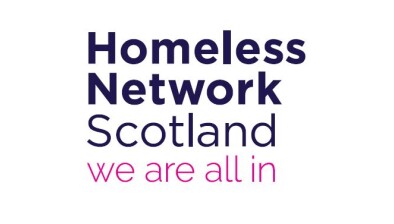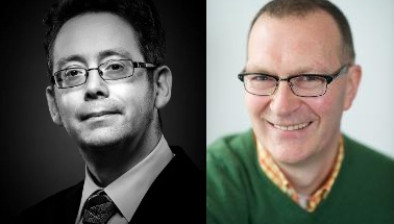Blog: Stigma of Homelessness
 Putting people with lived experience of homelessness at the centre of the solution is key, writes Ewan Aitken as he blogs on Shelter Scotland’s Homelessness Conference.
Putting people with lived experience of homelessness at the centre of the solution is key, writes Ewan Aitken as he blogs on Shelter Scotland’s Homelessness Conference.
I was very pleased to be asked to chair the Shelter Scotland Homelessness Conference last week. It’s the kind of thing I really enjoy doing and I was grateful for the opportunity to make a small contribution to what was an excellent day with contributions from Wales, Northern Ireland , England and Scotland – bringing the light of different experiences on a common challenge and opportunity.
What I was particularly impressed by, (apart from the fact that all the key note speakers were women), was the focus throughout the day on person centered solutions. Numbers and statistics are important measures, but success lies in the nurture and growth of wellbeing and flourishing.
Putting people first
Alison Watson, Shelter Scotland Deputy Director reminded us that homelessness is far from fixed but what we can do to fix it is include people who have lived experience of homelessness in solutions. Sonja and Suzanne, two women with lived experience of homelessness told us that was being part of their solution, and not losing their identity in the process is key. They were the first of many to say that the stigma of homelessness is one of the biggest barriers to believing hope and change is possible and to other people treating them as real participating citizens capable of doing a job or having an opinion.
(We’re currently recruiting for a peer support worker to join our homelessness services. If you’ve experienced homelessness and want to use your experience to help people sleeping rough or are vulnerably housed, apply here.)
The need to see this issue as fundamentally one of human wellbeing and flourishing was a theme that recurred in the varied and excellent contributions from Angela Constance, Cabinet Secretary for Communities, Social Security and Equalities, Joy Williams Homelessness Networks’ Co-ordinator, Welsh Local Government Association and Ricky Rowledge, OBE, Chief Executive, Council for the Homeless NI. Joy and Ricky were honest about the times when they had learnt to change their strategy when things didn’t work and they encouraged us to keep whatever we do simple – not simplistic or not based on evidence but simply people focused and not process driven.
Karyn McCluskey, the newly anointed Chief Executive of Community Justice Scotland was in her usual fiery form – calling for us to break the Calvinist culture that is still so embedded in Scottish thinking, which means we never really believe we can do the ambitious things we want to achieve. It is all about our humanity and our connectedness. That understanding will take us to where we want to go. We may not have a map but that will be our compass.
Hope for all
She also reminded us that we must never lose sight of the possibility of redemption for everyone – everyone can build a new and a better life no matter how tough the reality from whence they came. I believe that is just so important, fundamentally so. The day we decide some-one is beyond redemption is the day we admit we might be too.
The final panel of Beth Watts, David Duke, Tony Cain and Rosemary Brotchie reiterated the need for person centered, evidence based policy brought about by collaborating campaigning, all brought to bear at a human level which must be used to undermine and change the present housing and welfare systems which create homelessness by their inflexibility and inadequacy. A paradigm shift is required in what we do, how we do it and who drives the change.
What next?
It was a day of networking and learning with big reminders of what really drives us, how real ambition shows us the way. Homelessness is far from fixed but the solutions lies not simply in the hands of politicians but all of us – how do we talk of those we journey with, how do we challenge the stigma they experience, how do we make choices about who we employ and how do we call to account those who make decisions about funding and policy.
As Suzanne and Sonja told us so very clearly – this is urgent and its real for people today and its solutions lie in all of our hands.









